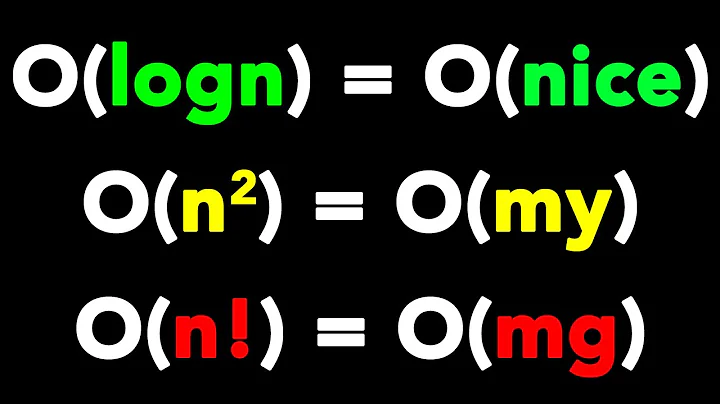f(n)=n^log(n) complexity polynomial or exponential
Solution 1
You can write n^(log(n)) as (k^(logk(n)))^(log(n)) = k^(K*(log(n)^2)). Since (log(n))^2 < n for n large enough, then this means that n^(log(n)) will grow slower than k^n
Solution 2
Try substituting n with b^m, which makes logb(n) = m. That should get you an idea of where to go.
Solution 3
it seems like it's not theta(exponential) or theta(polynomial); the posters above showed why it is not exponential. The reason why it is not polynomial can be done with a simple proof by counter example.
proof that n^logn is not O(n^k):
- suppose there is some k, with some c and n_0 such that for n>n_0, c*n^k > n^log n. this is the definition of O(n^k).
- it is simple to find a n, with the constants, such that this doesn't hold.
- if c>1, then that n is (ck)^ck.
- if c<1, then that n is k^k.
Related videos on Youtube
tetractis
Updated on May 31, 2022Comments
-
tetractis almost 2 years
I'm trying to figure out whether
f(n)=n^(logb(n))is inTheta(n^k)and therefore grows polynomial or inTheta(k^n)and therefore grows exponentially.First I tried to simplify the function:
f(n) = n^(logb(n)) = n^(log(n)/log(b)) = n^((1/log(b))*log(n))and because1/log(b)is constant we getf(n)=n^log(n).But now I'm stuck. My guess is that
f(n)grows exponentially inTheta(n^log(n))or even hyper exponentially because the exponentlog(n)is also growing.-
sleske almost 13 years+1 for actually explaining how far you got and where you are stuck
-
-
 drizzd almost 13 yearsWhere you have used that logarithmic growth is slower than any polynomial, which includes sqrt(n).
drizzd almost 13 yearsWhere you have used that logarithmic growth is slower than any polynomial, which includes sqrt(n). -
sleske almost 13 years@drizzd: Since when is sqrt(n) a polynomial?
-
Himadri Choudhury almost 13 years@sleske. sqrt(n) is technically not a polynomial, but it is n^0.5, and for algorithm complexity anything O(n^k) is considered polynomial time. At least that's how I've seen it defined.
-
 blubb almost 13 years@sleske: always been:
blubb almost 13 years@sleske: always been:sqrt(n) = n^(1/2)and that is polynomial -
sleske almost 13 years@Simon, drizzd: Well, the common definition of a polynomial (at least in general mathematics) only allows natural numbers as exponents. But of course if you just need an upper bound, it does not make a difference to allow arbitrary real exponents, so I'm really just nitpicking :-).







